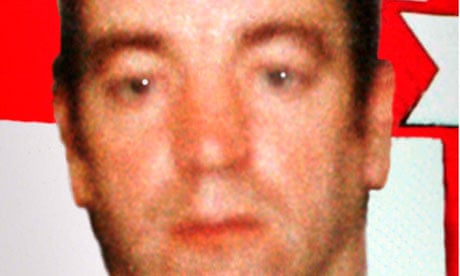A loyalist assassin known as The Jackal received a tipoff from a senior police officer that helped him elude justice over the killing of an Irish pop band in the mid-1970s, according to a report.
The cold case police investigations unit, the Historical Enquiries Team (Het), found Robin Jackson was linked to the murders of three members of the Miami Showband in July 1975.
The pop group were on their way back to Dublin when their minibus was stopped by a fake army patrol near the border. The Het report found that Jackson, a member of loyalist paramilitary group the Ulster Volunteer Force from North Armagh, had been linked to one of the murder weapons by his fingerprints. But Jackson later claimed in police interviews he had been tipped off by a senior Royal Ulster Constabulary officer to lie low after the killings.
Jackson, who emigrated for a period of the 1980s to South Africa, has since died from cancer. In 1984 he helped organise the attempted murder of the then Sunday World northern editor Jim Campbell, who had named Jackson as the leader of the UVF in Mid-Ulster, which was responsible for shootings and bombings against nationalists in the so-called "Murder Triangle" of North Armagh.
The report, which was released on Wednesday, said Jackson claimed he was tipped off that his fingerprints had been found on a silencer attached to a Luger pistol used in the Miami Showband murders. The Het team said the murders raised "disturbing questions about collusive and corrupt behaviour". It said the review "has found no means to assuage or rebut these concerns and that is a deeply troubling matter".
The bogus army patrol comprised soldiers from the Ulster Defence Regiment and UVF members in Armagh. Members of the band were made to line up at the side of the road while one UVF member tried to hide a bomb on the bus. The plan was that the bomb would explode en route, killing everyone on board as it entered Dublin. But the bomb went off prematurely, killing Harris Boyle and Wesley Somerville, who were members of the UDR, as well as the UVF.
After the explosion the other members of the UVF gang then opened fire on the band, killing lead singer Fran O'Toole, guitarist Tony Geraghty, and trumpeter Brian McCoy. The bass player, Stephen Travers, barely survived his injuries.
Three members of the UDR were eventually convicted for their part in the attack. James Somerville, Thomas Crozier and James McDowell received life sentences and remained in jail until their early release under the terms of the Good Friday Agreement in 1998 when republican and loyalist prisoners were given a de facto amnesty as part of the peace settlement.
Commenting on the report, band member Des McAlea, who survived the attack, said: "It's been a long time but we've got justice at last." He described the Het findings as "quite shocking" and "mind-blowing". "The fact that there was collusion in this is such a tragedy for all of us concerned," McAlea added. "To think that people were supposed to be protecting us and they were actually involved in this terrible tragedy."
